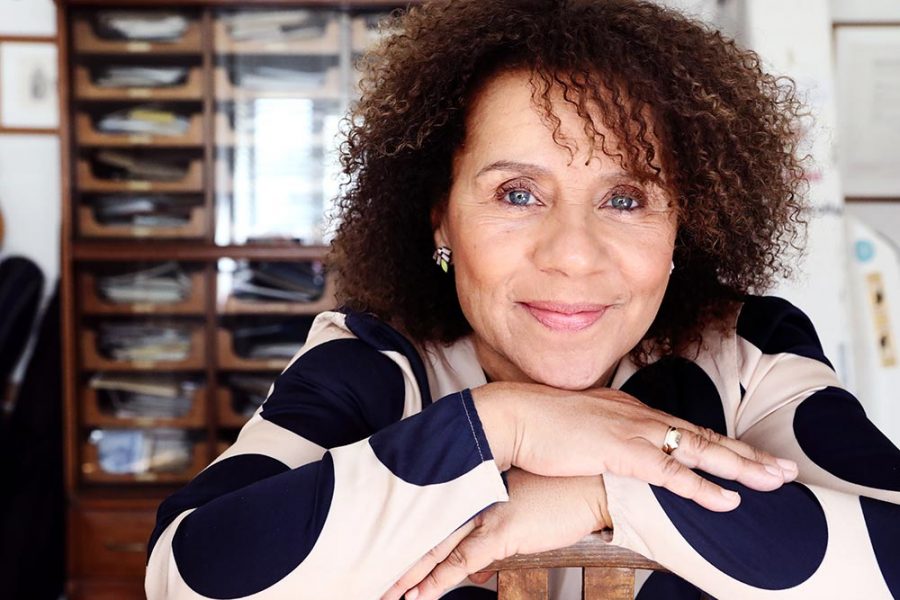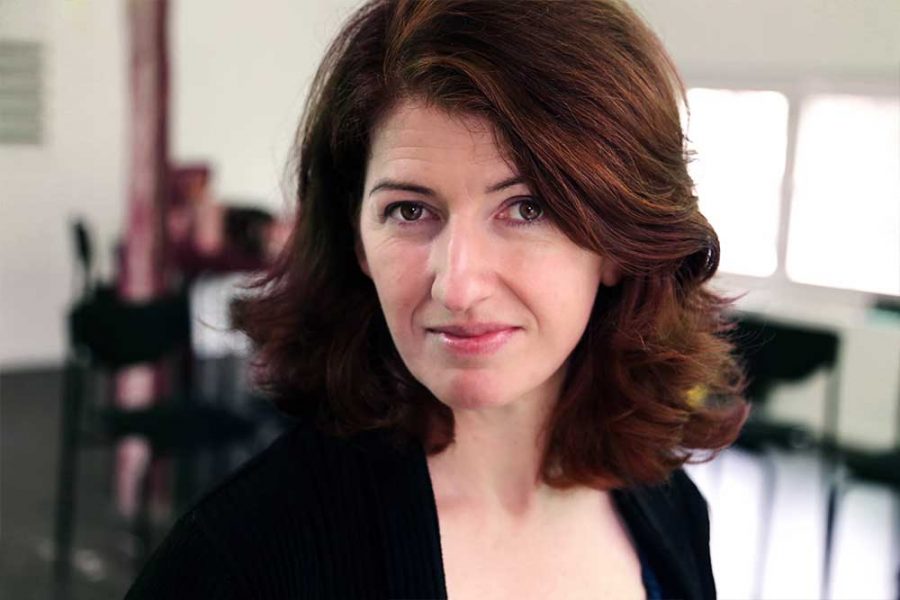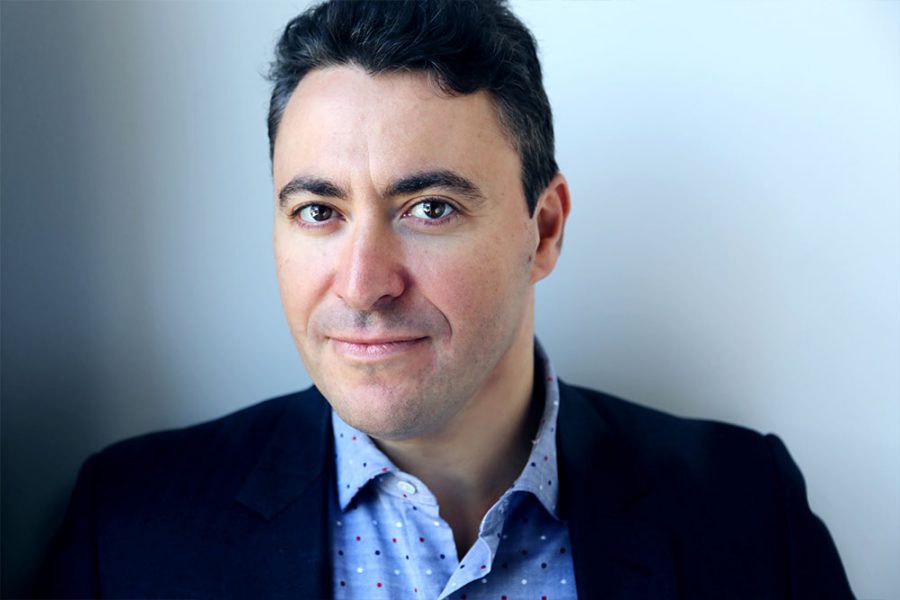Black Belt Beats: James Babor

May 2015
Words by
Emer Nestor
Photos by
Frances Marshall
James Babor has been a percussionist with the Los Angeles Philharmonic since 1993. His portfolio of performances includes appearances with the Cleveland Orchestra, the Toronto Symphony, the Seattle Symphony, the Kansas City Symphony, and the New World Symphony, to name but a few.
Babor regularly participates in concerts for the LA Phil’s Green Umbrella Series, and is also a member of the teaching faculty of the Thornton School of Music at the University of Southern California.
Babor chats about his foray into the field of percussion and his role within such a vibrant orchestra.
For some reason, it was all I wanted to do since 1st grade. I don't know why...I did not come from a musical family..."

What age were you when you first laid your hands on an instrument?
I was 5. In first grade and the instrument was a recorder. Don’t remember much about it other than that…Oh, and that the teacher was a shrew and scared the life out of me!
How was your time at Texas A&M University?
It was a very good place for me. I received a great education and was able to take courses in topics other than music (real estate law, for example). I minored in Cello, which was funny because I’m horrible at it, but they needed people in the University orchestra and I was a warm body.
Why did you decide to specialize in percussion?
For some reason, it was all I wanted to do since 1st grade. I don’t know why…I did not come from a musical family and I most certainly was not exposed to classical music through my youth. When I was a freshman in High School my family moved to Texas. Texas has a wonderful public education system and special opportunities for music. I took part in many state-sponsored competitions, and I also marched in Drum Corp which all fed my competitive spirit, and laid the foundation for discipline and hard work in the practice room.
Do you have a favourite percussion instrument?
Snare Drum. I feel if you can play snare drum well…I mean, really well, the other instruments in the percussion family are easier to master. In a way, everything comes back to snare drum.
How did the opportunity to play with the LA Phil arise?
In 1993 the orchestra announced a percussion opening which would be filled through a National Audition. I won that audition. I had never been to Los Angeles until the day before the audition, and it didn’t matter. It was a job in what seemed, at the time, to be an orchestra on the rise.
What are your favourite symphonic works, and why?
Stravinsky’s Rite of Spring because he uses percussion to help in telling the story and bringing the listener further along. Anything by Messiaen. The Mallet parts are challenging but the colors he creates are pure and individual. There is no mistaking a piece by Messiaen when you hear it!
What are the pros and cons of life as an orchestra member?
Pros: Nothing is ever stale or stagnant. Every week is a new adventure with new programs and new music to learn.
Cons: The grind of a musician within the orchestra and dealing with personalities and management can wear on you over time, and make you cynical.
As a musician do you ever feel that your talent is overlooked within the orchestra environment?
I’ve never felt that. At the end of the day you either have the respect of your colleagues in your field, or you don’t. Do you have the respect of respected colleagues? The biggest way to tell if you are respected is if your phone rings and if people are looking for you to play on their projects, etc…. My phone has always rung.

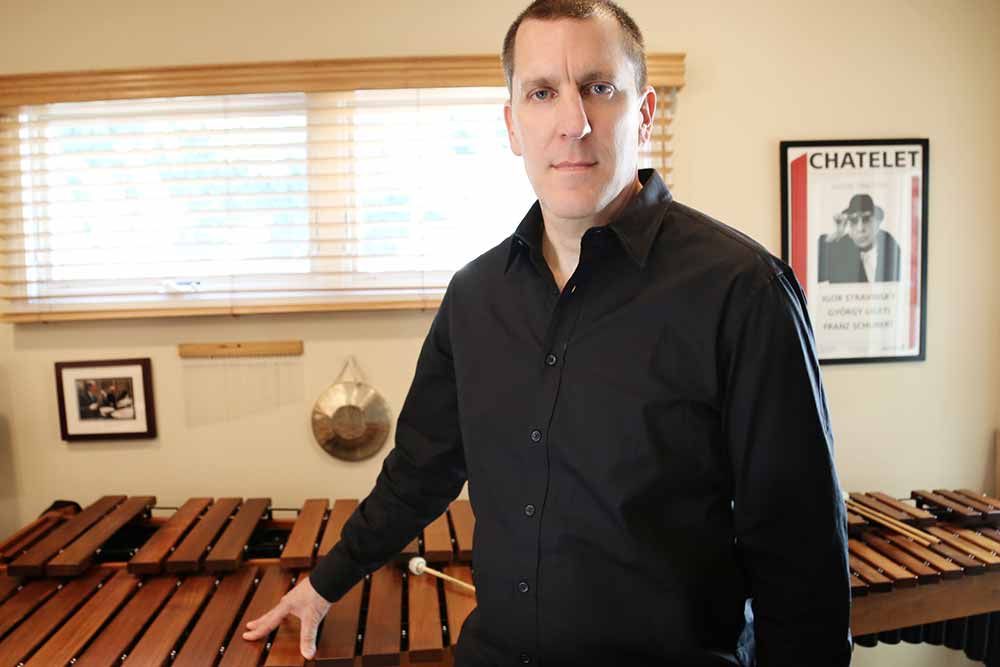


I try to be proactive and get my music way ahead of time so I can learn the notes, listen to recordings, and study scores."

How do you deal with learning new music within such a short time frame?
I am a notoriously bad sight-reader. It’s something that I spent a lot of time on as a student and just never could get comfortable with it. I try to be proactive and get my music way ahead of time so I can learn the notes, listen to recordings, and study scores.
Are you where you thought you’d be when you first set out in your career?
I’m where I wanted to be from the beginning, but there were bumps along the way: lost auditions, close calls, and I definitely doubted myself at certain points.
What advice would you give to percussionists preparing for auditions?
Practise….a lot! I mean like 8-16 hours a day! We have a lot of instruments to learn and we don’t have the physical limitations of a string player or brass player to restrict our practice. A percussion audition involves playing up to nine different instruments and you have to play each one at the highest level. You can leave no rocks unturned. Also, play for people in scary situations that mimic an audition. Recitals…mock auditions…travel and take lessons with different teachers. Until you get a job, your job is auditioning, so you need to fully grasp the mechanics of it all.
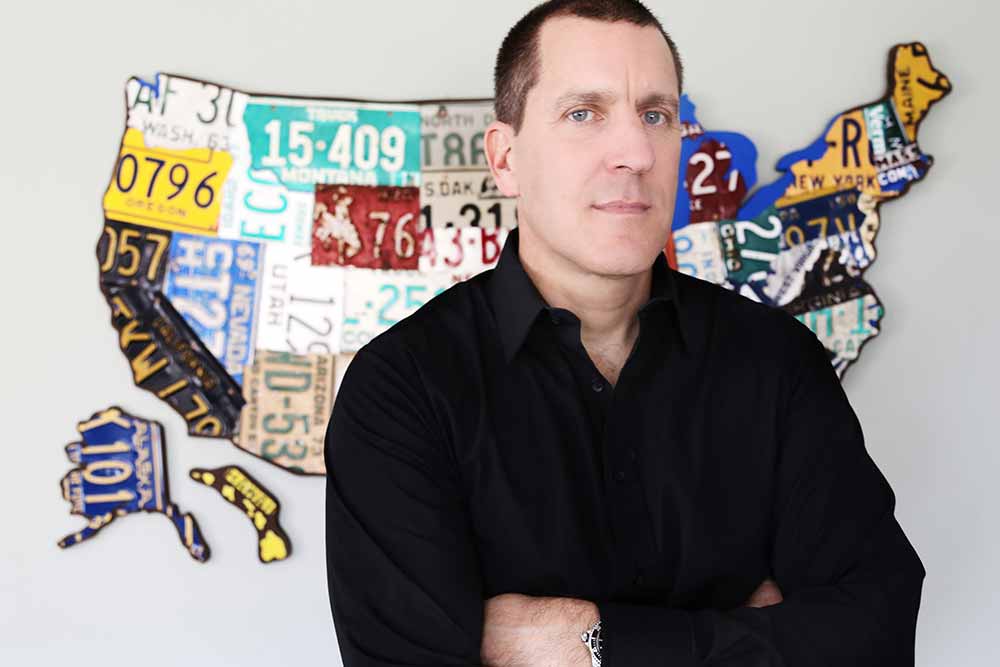


Percussion has become an increasingly dominant force in many orchestral scores for film and TV music — is it now easier to get recording work in this area?
Eh, no! It’s harder than ever…at least in Los Angeles. There is less and less work as soundtracks are being sourced out to cheaper groups or produced electronically.
Who inspires you in your field?
Richard Weiner—former Principal Percussion of the Cleveland Orchestra.
Has your playing/technique changed much over the years?
Undoubtedly, you are in the best shape as a musician on the day you leave school. School was when you had the most time to practise without the constraints of everyday life (family, bills, teaching, etc…). At this time I feared that I would get worse as a professional because I would not have my teachers there to hold my feet to the fire. Richard Weiner, my primary teacher in grad school, always told me that his job was to teach us how to teach ourselves and listen critically to what we are doing. Because of this, I most definitely did not get worse (as I feared). Through time and experience I have improved most aspects of my playing. In addition, my knowledge of the repertoire has been reinforced through the experience of playing everything.
Life as a percussionist is physically demanding — how do you look after yourself?
I am a third-degree black belt in Aikido and an instructor. I do crossfit, and I’m a very active technical scuba diver (caves, deep, ghost net removal). The scuba alone involves a high level of fitness. I feel that all three of these activities benefit and compliment my music making.
What kind of music do you play outside of the orchestra?
I like to play in the Philharmonic Green Umbrella series which is a contemporary chamber ensemble. For percussion, the music is always challenging, and I like the pressure of playing in the smaller chamber groups. It keeps me honest. I also teach Percussion at the University of Southern California Thornton School of Music. I love teaching and enjoy the manner in which the students bring such different aspects of percussion into my life.
What are you most proud of in your career so far?
That I have a career! I am one of the lucky ones. There is a bottleneck of great players out there and simply not enough job openings for all of them. I am proud and thankful that I get to play in one of the great orchestras of this country, and indeed the world, and I can make a secure living doing that.
Any exciting plans for the coming months?
This summer the orchestra moves to the Hollywood Bowl. Playing at the Bowl is always fun—more relaxed than the winter season downtown, and a different demographic for an audience. It keeps things fresh and interesting. Also, I’m looking forward to a vacation with my Wife and 14 year old son…and some cave diving in Mexico I’m sure!
All images displayed in this article are subject to copyright.
Share this article



